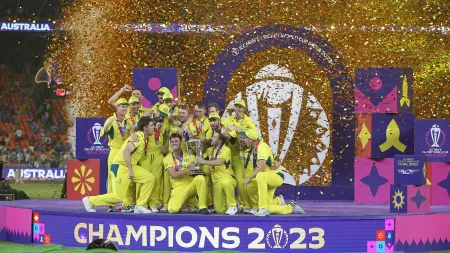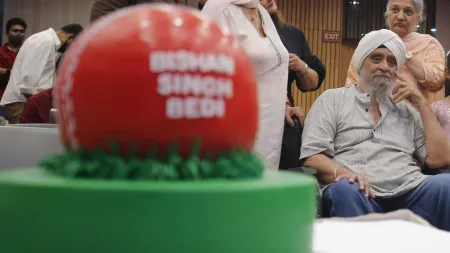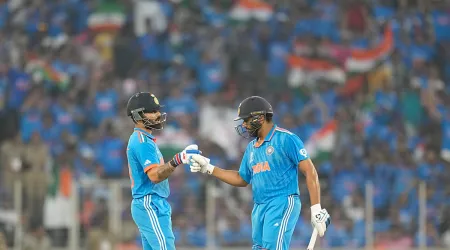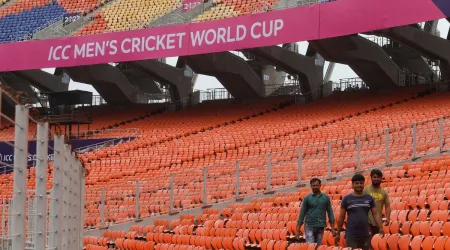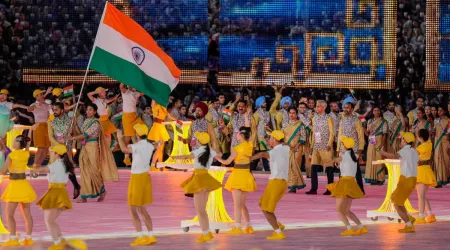- India
- International
Far away from Havana, former India boxing coach BI Fernandez recalls Fidel Castro’s pep talk
For BI Fernandez, first foreign coach to get Dronacharya award, feels Fidel Castro's legacy is that they never crumbled under US pressure.
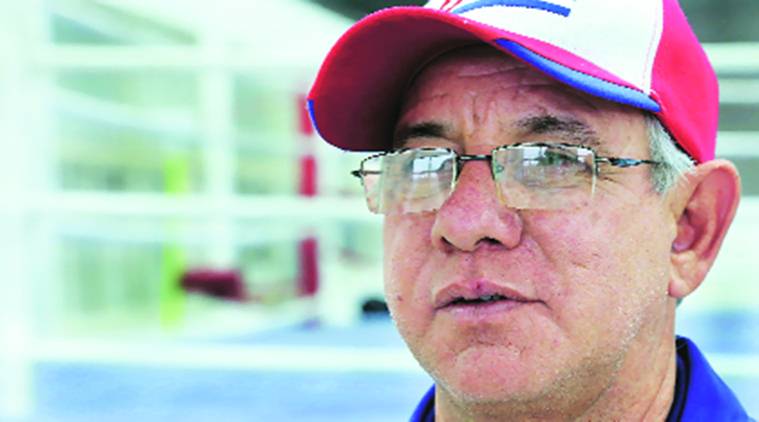 BI Fernandez was banned by the world body for showing dissent to the referees. (Source: Express File)
BI Fernandez was banned by the world body for showing dissent to the referees. (Source: Express File)
In the April of 2014, a few months before the then India boxing coach BI Fernandez was banned by the world body for showing dissent to the referees, a pack of American boxers made their first expedition to Havana for a semi-professional bout with their Cuban counterparts. It broke a 27-year-old deadlock between the two nations sharing a fractious relationship.
Before the impasse, the last time Cuba hosted the Americans was in 1987. The Americans got a routine pummeling from the Cubans that summer two years ago. But Fernandez had reasons to cherish the moment. For it was the first, and he emphasises the only time he shook hands with Fidel Castro, who had dropped in at the training centre to give the boxers a pep talk. “You’ve heard the stories, you’ve listened to his speeches on radio and now you’re not only seeing him, but also shaking hands with him. I had to pinch myself to know if it was real or not. His message was simple. I don’t need to tell you anything, I know you are proud Cubans,” reminiscences Fernandez, who was a support staff with the squad.
The Americans, for the umpteenth time since the first bilateral series between them, were trounced. “We always gave our best against them. I don’t need to tell you the reasons. And you know why,” he turns rhetorical. Fernandez, now 60, is the first foreign coach to be honoured with India’s highest acclaim for a coach – the Dronacharya award. He first came to India in 1990 and had since supervised the polishing of dozens of pugilists who went on to medal at the Asian Games, Commonwealth Games and even Olympics. A well known and respected strategist, who dutifully served Indian boxing for two decades and even missed his daughter’s wedding in order to be with Indians preparing for the London Games, Fernandez – known to boxers at Patiala as ‘Cuban’ – brought with him several tricks from the pugilists’ powerhouse, most prominently twinkling dancing footwork. Though halfway across his homeland for a good part of the last quarter century, Fernandez was visibly proud of his motherland.
For Fernandez, Castro’s legacy is that they never crumbled under US pressure. “You know what happened after the invasion (1962, what is called the Bay of Pigs Invasion). We kicked them out of the country like this,” he says, then curls up his own legs as a footballer would and kicks the floor.
The leader, he says, denoted the very Cuban spirit. “To me, the greatest thing Fidel and we Cubans can be proud of is that we never succumbed to any pressure. We are a small country, we have only so much resources, but we showed them (Americans) how proud we are to be Cubans. They tried to kill him 600 (688) times, but failed. That embodies the Cuban spirit. And the Cubans, whatever people from other countries say, are proud of their leader,” he states.

Fernandez says, despite his flaws, Castro was loved. “Everybody has flaws, if you look at it that way. There might have been flawed policies. Our economy might be going down all the time, but compare our country with our neighbours like Venezuela, or Mexico, or even the US. There is so much of crime, drugs, mafia, murder. Cuba is peaceful. You won’t wake up to gun shots at night. If law and order is fine, then half your worries are over,” he contends.
The coach said his nation’s healthcare system had a big role to play in their sporting success.
Cuba’s detractors often ridicule the system, saying ‘they have the finest healthcare system, but no money to buy soap, Fernandez explains how beneficial it was to the island nation. “Before Castro changed the system we were dependent on countries like Russia or China for our medicines. Medicine was always cheaper in the US. We share a border too, but they never helped us. Now, everything is free. From the sweepers to the diplomats in our country, they get access to the same medicine. That’s great equality. In the US, you know how costly medicines are or visiting a doctor is,” he points out.
And Castro, says Fernandez, always encouraged sports and sportsmen. He set up the National Sports and Physical Education Institute in 1961. He was close to high jumper Javier Sotomayor – a world record holder and 1992 Olympic champion and to 800m World champion runner Ana Fidelia Quirot
There is a even a legend that Castro loved sports as much as he loved Cohibas (his cigar brand). “It was his vision that everybody had to play some sport, not for fame or fortune, but for a healthy lifestyle. He always supported Cuban sportsmen, financially or otherwise,” he explains.
Famously, it was his adulation for Castro that prompted the legendary Teofilo Stevenson—a three-time Olympic gold medallist, known as the Cuban Ali—to turn down an offer for a 40 million USD bout with Ali in his pomp.
“It was in the 70s, and he was at his peak. A lot of people said he was better than Ali. I don’t know. But I remember what he said when someone asked him why he refused it. He said, ‘I don’t care about 40 million dollars. But I do care about 10 million of my people. I just want them, their love.’”
However, it was not only political antipathy that dissuaded them against embracing the more lucrative professional boxing. Fernandez offers an interesting perspective: “It was mainly a cultural reason. We don’t do sport to harm people. It’s for health and recreation. But the professional boxing, those days in the US, was brutal, bloody brutal.
They were like criminals. Cuban boxers could have ruled pro boxing for ages, but we didn’t because we felt it was against the principles of humanity. It was the reason professional boxing was banned in our country,” he says.
Fernandez says he felt unfortunate that he was in India when Castro passed away. He couldn’t mourn like several others back home. But the moment he heard the news of his death, his memories went back to that evening in Havana. That memory, he says, will be forever treasured.


















